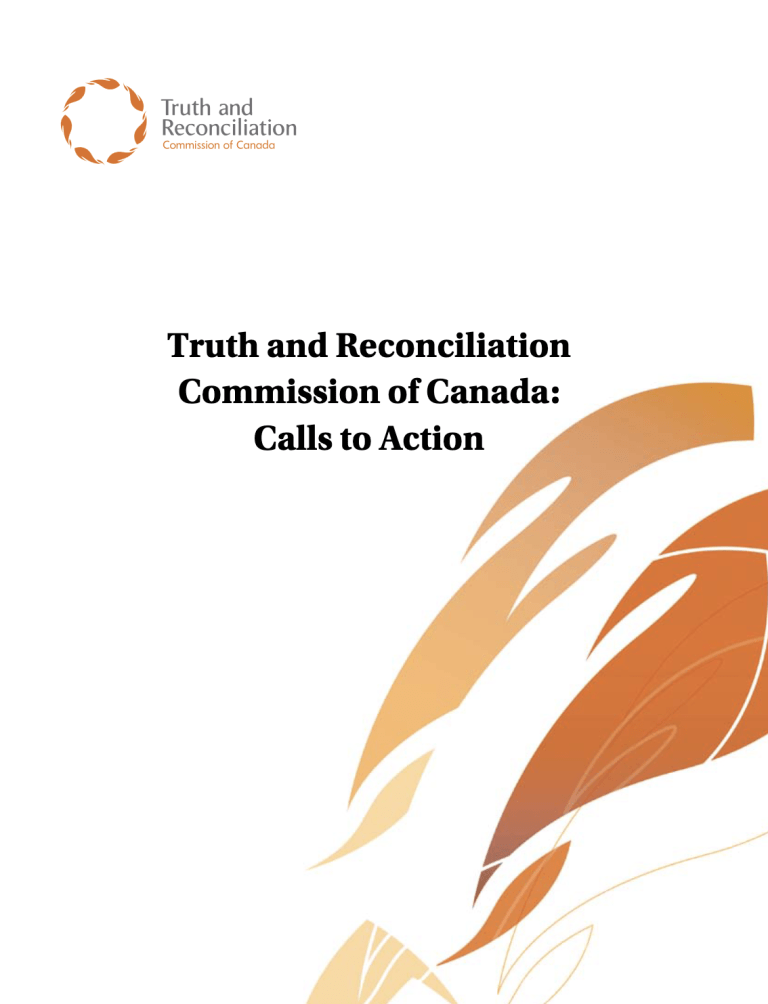19 search results
for
Criminal justice system
Legacy
Justice
Recommendation 25: We call upon the federal government to establish a written policy that reaffirms the independence of the Royal Canadian Mounted Police to investigate crimes in which the government has its own interest as a potential or real party in civil litigation.-
Category and theme:
Audience:
Groups affected:
Location of recommendation:
Legacy
Justice
Recommendation 26: We call upon the federal, provincial, and territorial governments to review and amend their respective statutes of limitations to ensure that they conform to the principle that governments and other entities cannot rely on limitation defences to defend legal actions of historical abuse brought by Aboriginal people.-
Category and theme:
Audience:
Groups affected:
Location of recommendation:
Legacy
Justice
Recommendation 27: We call upon the Federation of Law Societies of Canada to ensure that lawyers receive appropriate cultural competency training, which includes the history and legacy of residential schools, the United Nations Declaration on the Rights of Indigenous Peoples, Treaties and Aboriginal rights, Indigenous law, and Aboriginal–Crown relations. This will require skills-based training in intercultural competency, conflict resolution, human rights, and anti-racism.-
Category and theme:
Groups affected:
Location of recommendation:
Legacy
Justice
Recommendation 28: We call upon law schools in Canada to require all law students to take a course in Aboriginal people and the law, which includes the history and legacy of residential schools, the United Nations Declaration on the Rights of Indigenous Peoples, Treaties and Aboriginal rights, Indigenous law, and Aboriginal–Crown relations. This will require skills-based training in intercultural competency, conflict resolution, human rights, and anti-racism.-
Category and theme:
Audience:
Groups affected:
Location of recommendation:
Legacy
Justice
Recommendation 30: We call upon federal, provincial, and territorial governments to commit to eliminating the overrepresentation of Aboriginal people in custody over the next decade, and to issue detailed annual reports that monitor and evaluate progress in doing so.-
Category and theme:
Audience:
Groups affected:
Location of recommendation:
Legacy
Justice
Recommendation 31: We call upon the federal, provincial, and territorial governments to provide sufficient and stable funding to implement and evaluate community sanctions that will provide realistic alternatives to imprisonment for Aboriginal offenders and respond to the underlying causes of offending.-
Category and theme:
Audience:
Groups affected:
Location of recommendation:
Legacy
Justice
Recommendation 32: We call upon the federal government to amend the Criminal Code to allow trial judges, upon giving reasons, to depart from mandatory minimum sentences and restrictions on the use of conditional sentences.-
Category and theme:
Audience:
Groups affected:
Location of recommendation:
Legacy
Justice
Recommendation 34: We call upon the governments of Canada, the provinces, and territories to undertake reforms to the criminal justice system to better address the needs of offenders with Fetal Alcohol Spectrum Disorder (FASD), including:- Providing increased community resources and powers for courts to ensure that FASD is properly diagnosed, and that appropriate community supports are in place for those with FASD.
- Enacting statutory exemptions from mandatory minimum sentences of imprisonment for offenders affected by FASD.
- Providing community, correctional, and parole resources to maximize the ability of people with FASD to live in the community.
- Adopting appropriate evaluation mechanisms to measure the effectiveness of such programs and ensure community safety.
-
Category and theme:
Audience:
Groups affected:
Location of recommendation:
Legacy
Justice
Recommendation 35: We call upon the federal government to eliminate barriers to the creation of additional Aboriginal healing lodges within the federal correctional system.-
Category and theme:
Groups affected:
Location of recommendation:
Legacy
Justice
Recommendation 36: We call upon the federal, provincial, and territorial governments to work with Aboriginal communities to provide culturally relevant services to inmates on issues such as substance abuse, family and domestic violence, and overcoming the experience of having been sexually abused.-
Category and theme:
Audience:
Groups affected:
Location of recommendation:
